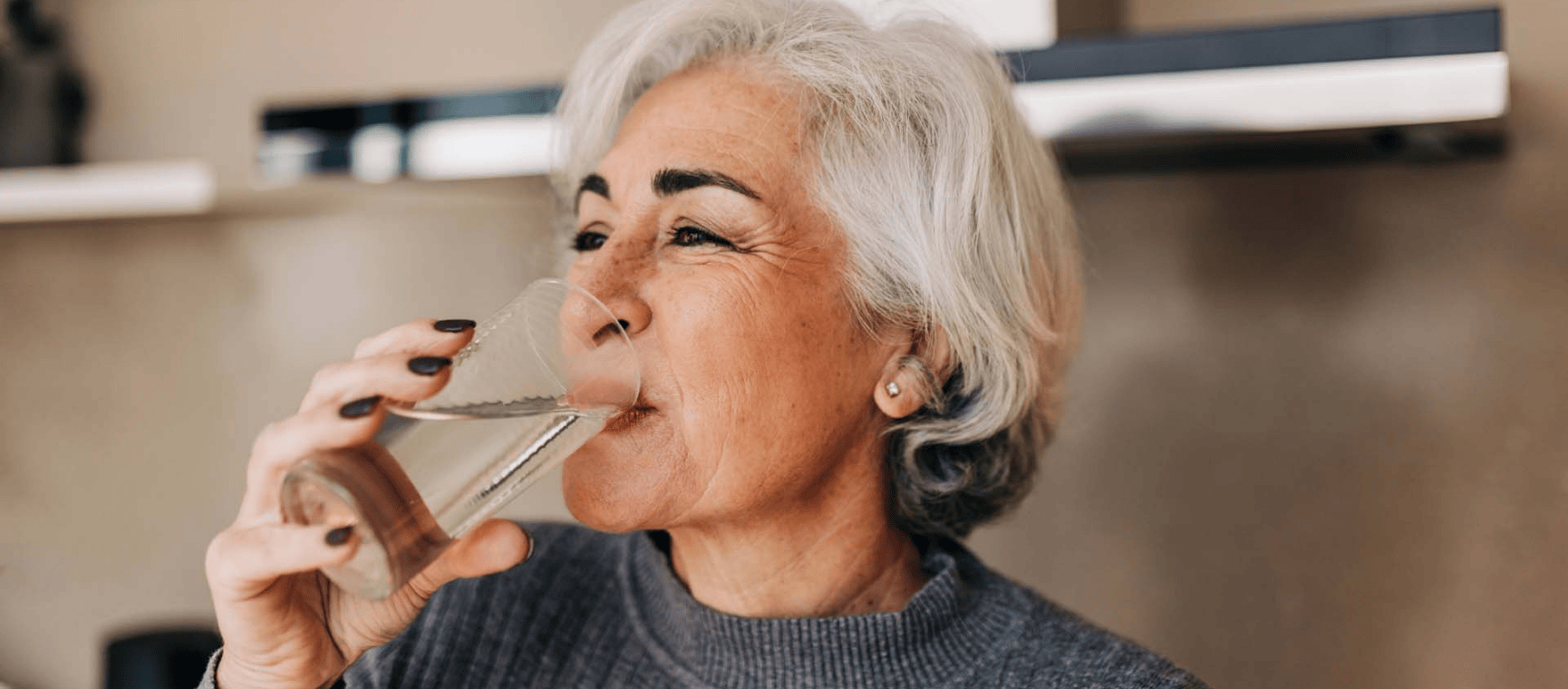
Have you ever been concerned about the fluid intake of someone you care about or asked yourself whether you really are drinking enough every day?
It's an important question to ask, because as we get older we are more vulnerable to dehydration.
But while staying hydrated is really important, our sensation of thirst can reduce as we age - while those living with dementia or Alzheimer's may not even recognise that they are thirsty or forget to drink.
Our body needs water to function properly, flush out toxins, lubricate the joints and aid digestion.
So how much do we need to drink every day and does it have to be water?
Sophie Medlin, a consultant dietitian and chair of the British Dietetic Association for London, says: “Every cell within our body needs water.”
Fluid is vital for various functions in the body, from transporting nutrients to regulating temperature.
Without drinking enough water, or if you become dehydrated, “you are at high risk of urinary tract infections (UTIs), which can cause confusion. It can also make your blood pressure low, meaning you’re more likely to fall,” Medlin explains.
Drinking enough fluid is essential for various bodily processes, such as keeping joints lubricated, and it affects everything from ageing healthily to cognitive function and mood.
Fluid also helps our kidneys perform a crucial role. Medlin says: “If we don't drink enough, our kidneys can struggle to remove waste from our bodies to make sure that we are staying healthy.”
What’s more, staying hydrated can help to reduce our risk of chronic diseases and promote longevity by helping to maintain normal sodium levels.
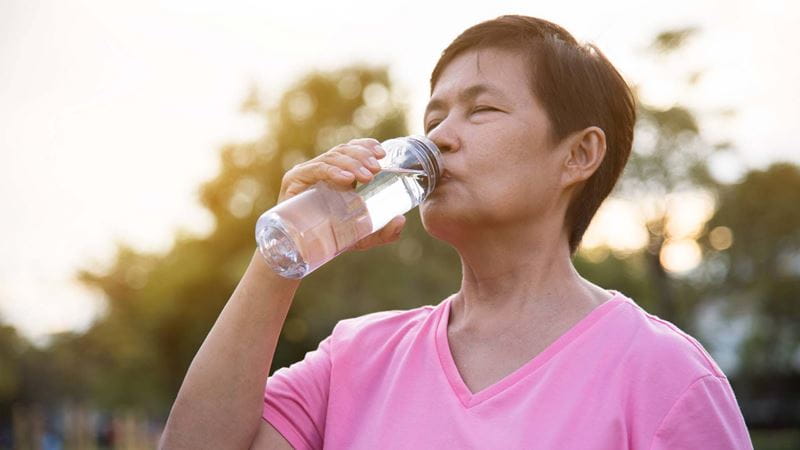
Researchers analysed sodium levels in the blood, which can indicate how hydrated someone is, of 15,700 adults, aged 45-66, for 25 years.
Findings showed that people who had the higher end of a normal range of sodium in their blood had a 39% greater chance of developing chronic illnesses.
They were also 50% more likely to have biological markers of age older than their chronological age.
The amount of water you need each day is individual and can vary and depend on a variety of factors, including your age, lifestyle, body size and climate.
Medlin adds that if you are unwell with a fever, you will need more fluids. Plus, she says, certain medications may require us to drink more water with them.
However, in general, the NHS Eatwell Guide recommends that we drink six to eight cups or glasses (1.5-2 litres) per day for good hydration. And the good news is that it doesn’t just have to be water.
Lower-fat milks, lower-sugar or sugar-free drinks, and tea and coffee all contribute towards your fluid intake. At her clinic, Medlin uses a specific calculation to determine personalised daily fluid requirements for her patients.
“People who are under 60 need 35ml (1.2 fl oz) per kilogram of body weight, and people who are over 60 need 30ml (1 fl oz) per kilogram of body weight,” she says.
“For example, a small 40 or 50 kg (6 to 7.9 st) woman will definitely need less fluid than a 6ft (1.83m) man.”
Some people with heart failure are told to limit their fluid intake because the condition can cause the body to retain fluid, which makes it harder for your heart to pump and can overload it.
However, restricting fluid is not recommended for all people with heart failure. It’s best to speak to a health professional about your consumption.
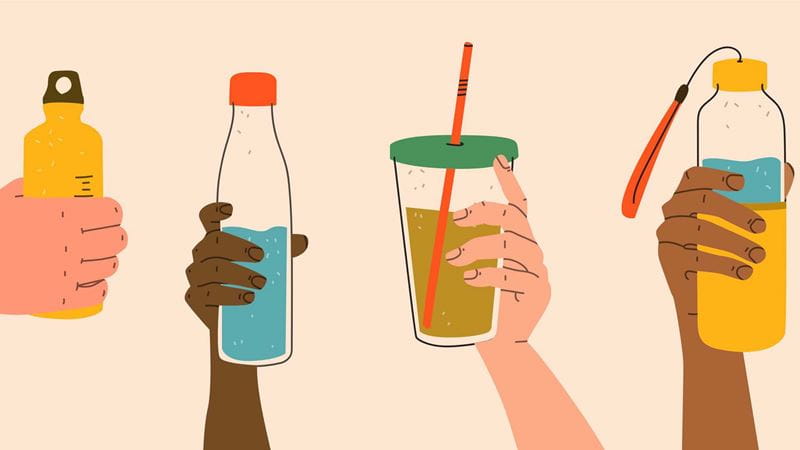
“Day to day, water is the best fluid to hydrate with,” says Medlin.
If you’re not a huge fan of water, don’t worry; research has suggested that milk could be a better hydration fluid.
Medlin’s response to this is that “milk contains electrolytes which can support hydration. On particularly hot days or if you’re sweating [perhaps from exercise] or think you might be dehydrated, rehydrating with liquids containing electrolytes is helpful. And, of course, milk has lots of benefits beyond hydration.”
However, experts say studies that favour milk for hydration have limitations, such as small numbers of participants and unreliable ways of measuring hydration.
While tea and coffee can help toward hydration, Medlin warns that caffeine has a diuretic effect. This means it increases your need to pee and you lose more fluid.
To combat this, she recommends: “Place a glass by the kettle to remind you to drink water while it’s boiling.”
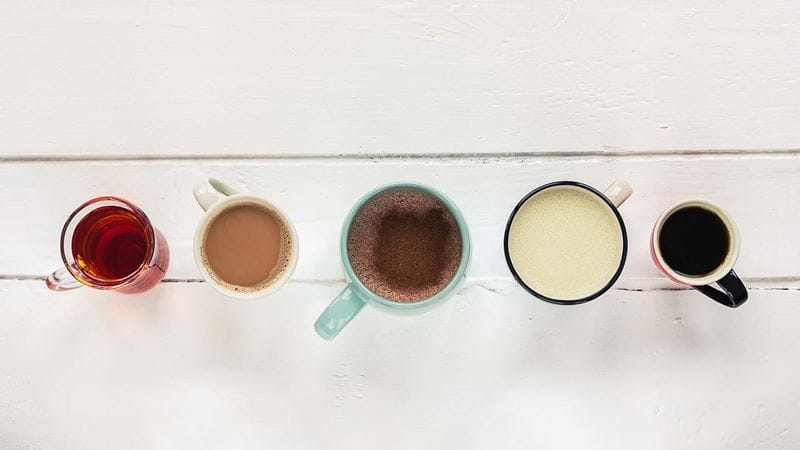
If you're concerned that you or someone else is not drinking enough, there are key symptoms that you can look out for.
Feeling thirsty can be the brain’s way of telling you that you need to drink more, according to NHS Scotland.
While your urine is a good indicator as to whether you’re hydrated, Carter says how often you pee is a better indicator.
“As you get older, your pee is not necessarily going to be the lovely clear, straw colour you would aim for,” she says. “It is much more likely that it’ll be a darker colour no matter how much you drink. If you're only peeing once or twice a day, then you're probably not drinking enough.”
Despite this, the NHS urine chart can be a useful tool for checking the colour of your pee to see whether you’re drinking enough.
“If your skin is dry or you pinch it and it doesn’t bounce straight back, that might mean you need to drink more fluid,” says Medlin.
“If your mouth is dry, you can sometimes see the imprint of your teeth on your tongue,” she continues.
Carter adds that dentures that move when you’re talking can be another sign your mouth is dry and you might be dehydrated.
This could also cause you to feel unsteady on your feet.
Feeling tired might not just be down to a lack of sleep.
Just as skin can become less moist if you don’t drink enough, it can also become less plump. This might be noticeable around the eyes.
Particularly relevant for older people, Carter says this can be something we can fail to recognise. UTIs can be caused by dehydration, and a symptom can be sudden confusion.
She says: “If this happens to someone, people might mistake this for dementia and not realise it is probably delirium due to lack of fluid.”
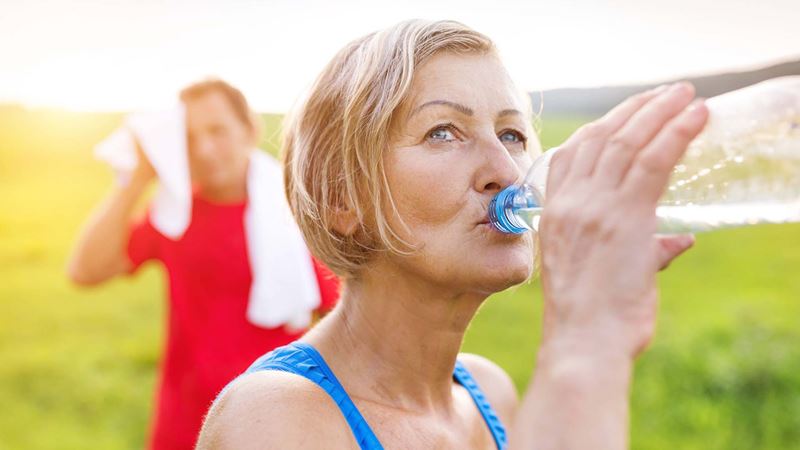
The experts provide some tips for keeping yourself and those you care about hydrated.
If you’re concerned someone else isn’t drinking enough, Carter says to first find out why.
“Is it because they are worried about incontinence or just don’t fancy water?” she says. “You can explain that drinking less won't make you pee less.”
You could also try adding foods such as cucumber or mint to water for flavour. Or try a cordial, elderflower isn't too sweet.
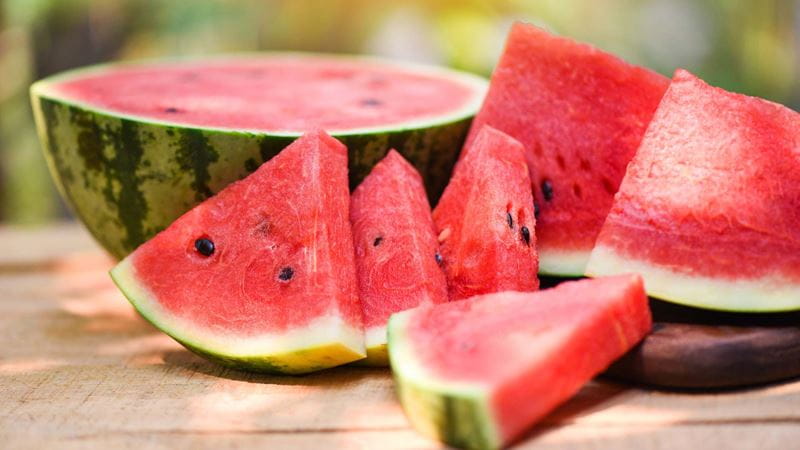
“People forget that you don’t solely get fluid from drinking. You can also get a good amount from certain foods,” says Carter.
“You could have an orange or watermelon, or gravy or custard with your food; all of this contributes to the amount of fluid you need.”
She says soup is another option and cup-a-soups are even easier to make. Be sure to check nutrition labels as these can have high salt content.
Medlin says: “Make it a habit and do it alongside other things already part of your routine to make it easier to stick to. For example, having a drink with meals.”
Carter suggests every time you have a catch up with someone or you watch your favourite programme, have a drink.
If you don’t already, Carter says to try and get into the habit of taking fluid with you, whether that’s around your home or each time you leave home.
Using a bottle with time markers or measures to encourage yourself to drink more can be a good idea.
You can still transfer the liquid from the bottle to a glass if this is the preferred way to drink it.
Carter explains that you can buy a water bottle that hooks to places like the back of a chair and has a long straw that feeds into the mouth. This makes fluid convenient and easy to reach.
She says: “For someone who relies on carers, make sure the jug or bottle of fluid is within reach and refreshed regularly. Nobody wants stale water.”
But what about when it's hot?
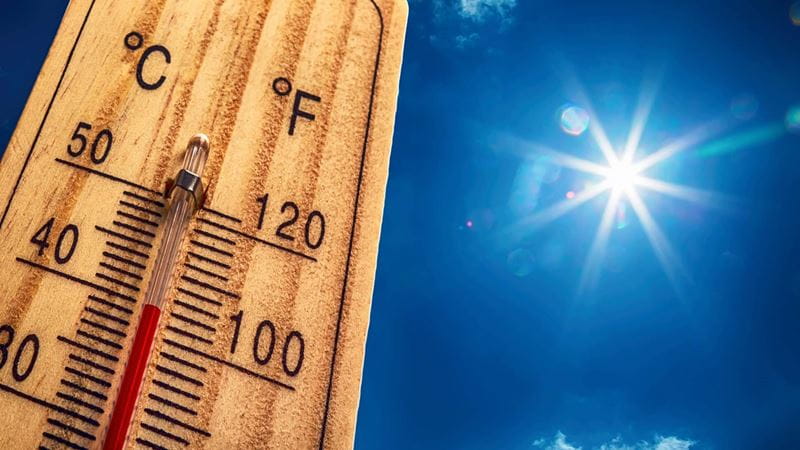
Medlin says: “It's important to recognise that you need to adjust the amount you’re drinking. In hotter weather, you’ll most likely be sweating and need more fluid.”
Lesley Carter, a registered nurse and programme lead at the Malnutrition Task Force, which is supported by Age UK, adds: “Take a drink to bed to have beside you at night, too.
"If you’re someone with carers [or know someone who has carers looking after them] who has gone to bed at around 9pm, for example, and carers don’t come in until breakfast time, that’s a long period of time without a drink.”
Her other tips for staying hydrated in the heat are putting ice in your drink or having an ice lolly. Just be sure to go for no-added-sugar varieties where possible.
Set a reminder if you’re likely to forget to drink.
Downloading a water-tracking app could be useful for this. Water Tracker – Water Reminder is available on Android and Water Tracker – Drink Reminder is available on Apple devices.
Gemma Harris has been a journalist for more than seven years and is a self-confessed health and wellbeing enthusiast, which led her to specialise in health journalism. During her career, she has worked with top editors and publications in the industry.
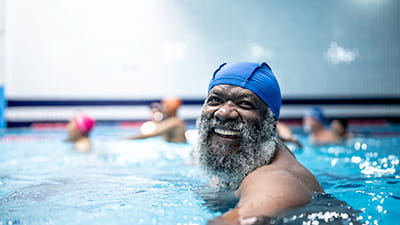

Health insurance for people over 50 that provides a quicker route to diagnosis and planned medical treatment in a private facility.
Underwritten by Bupa Insurance Limited.
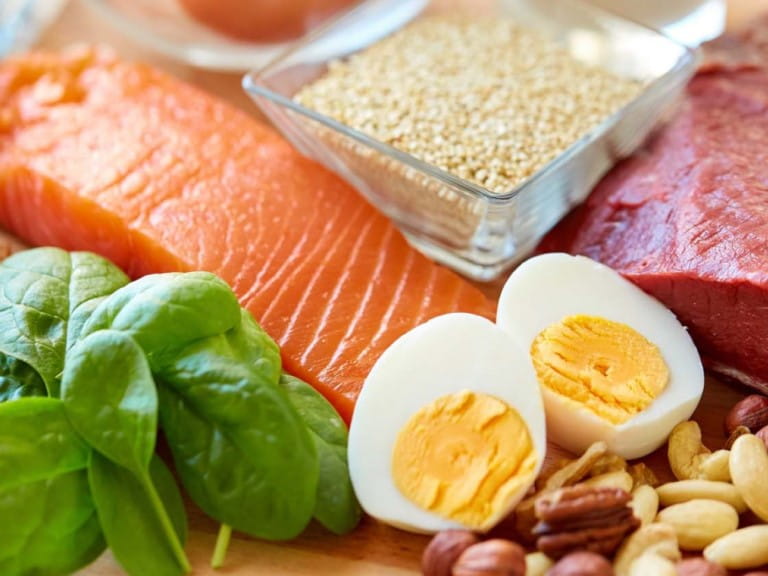
Everything you need to know about protein, from how it benefits your body to the best high-protein foods – and how much you really need.
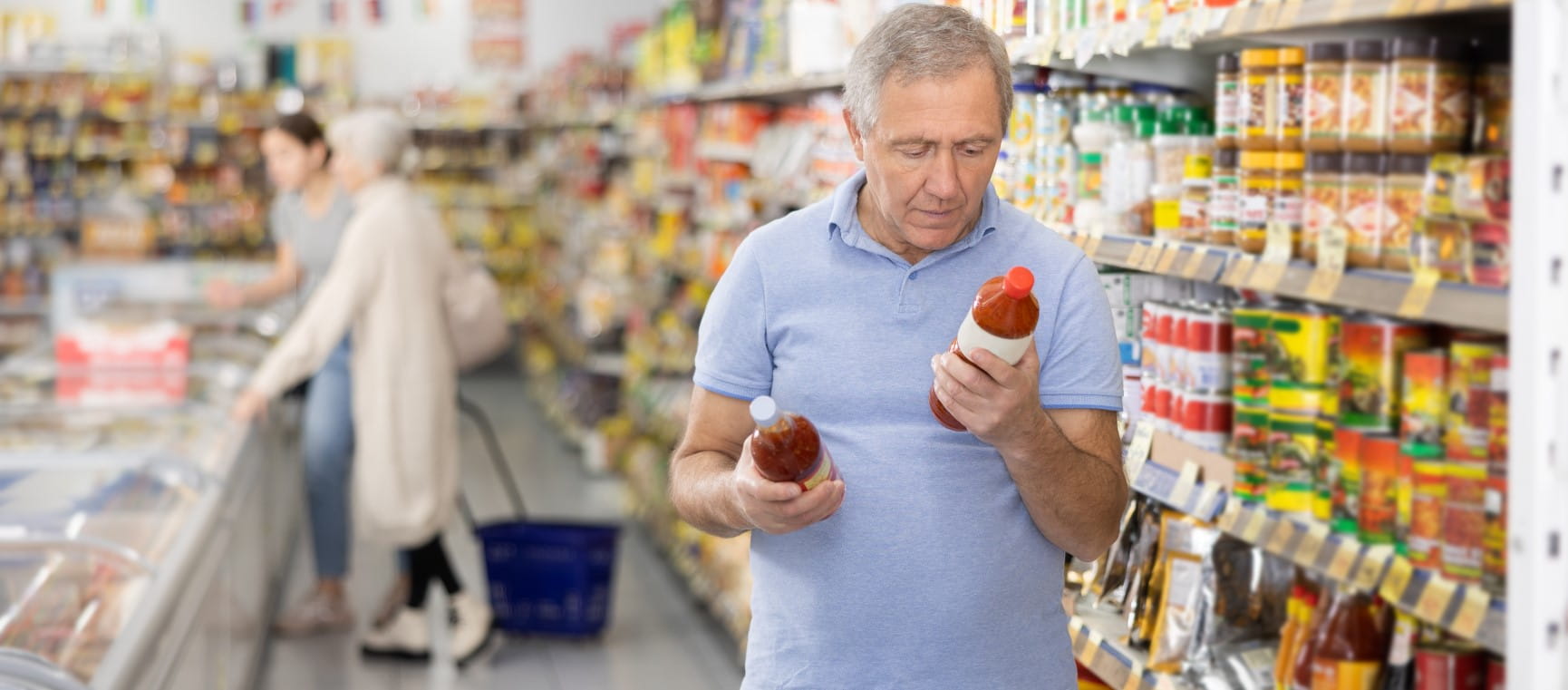
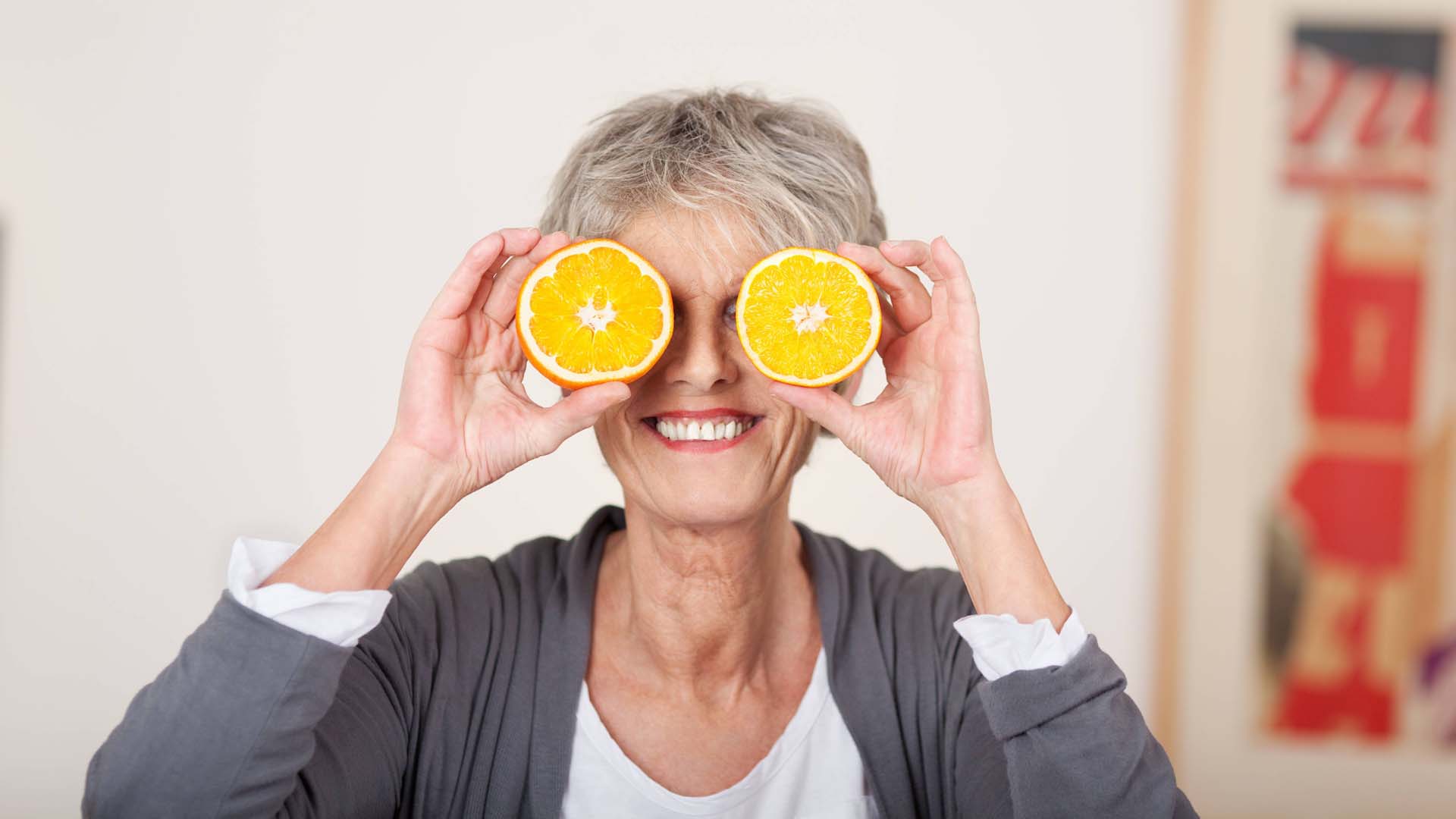
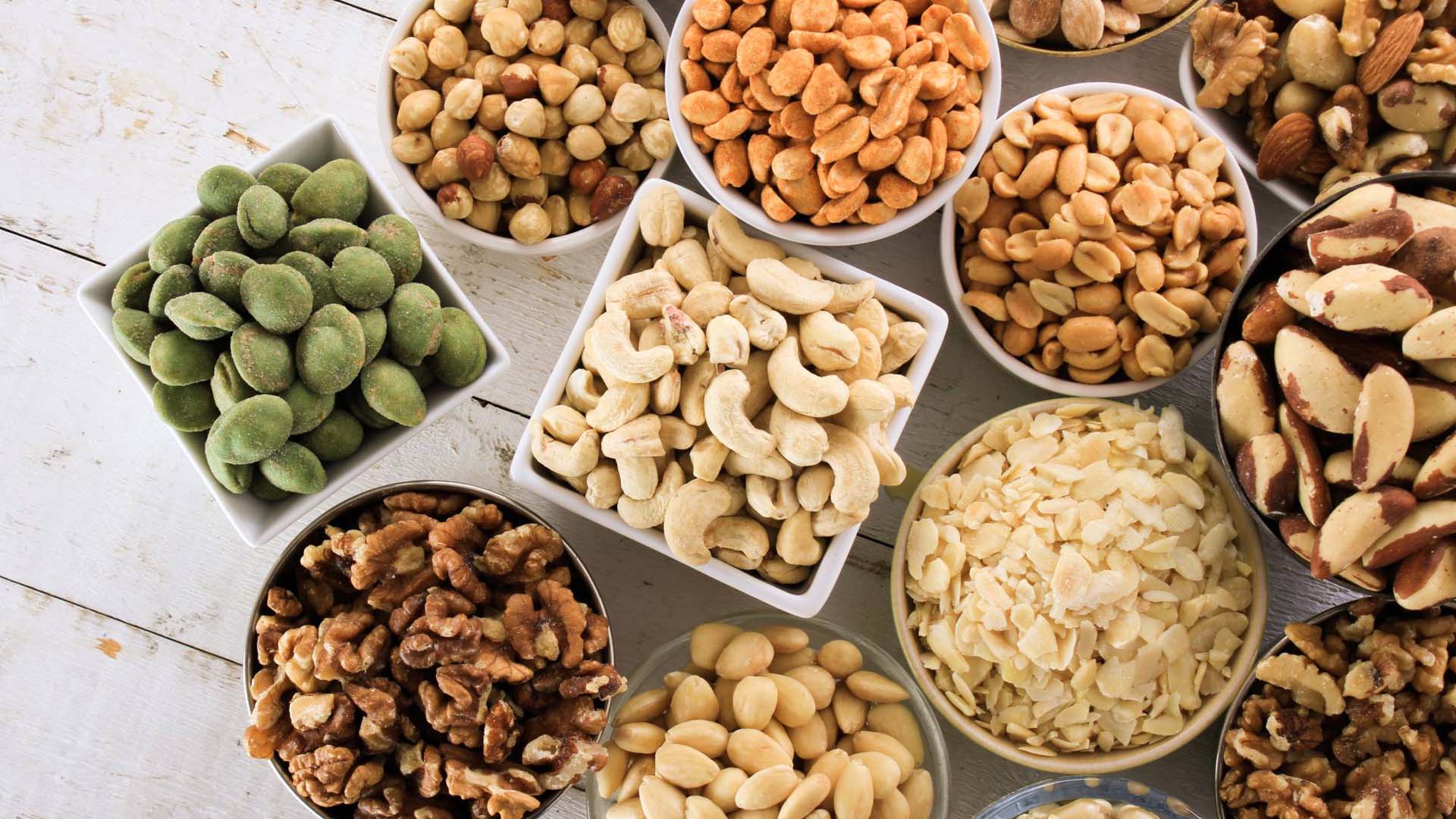
Let’s roast the myths! Not only are nuts less fattening than once feared, research shows they can cut the risk of heart disease too
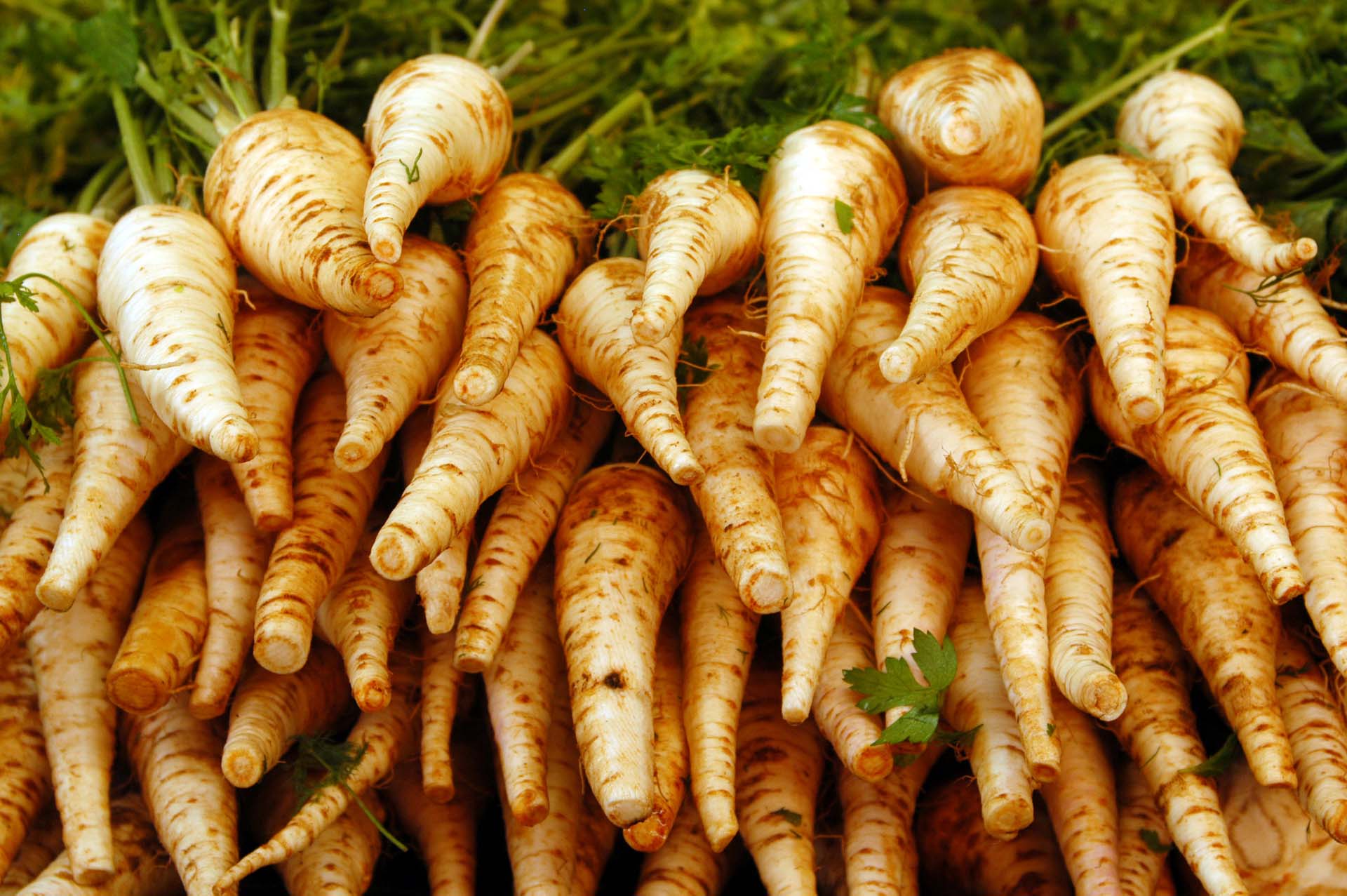
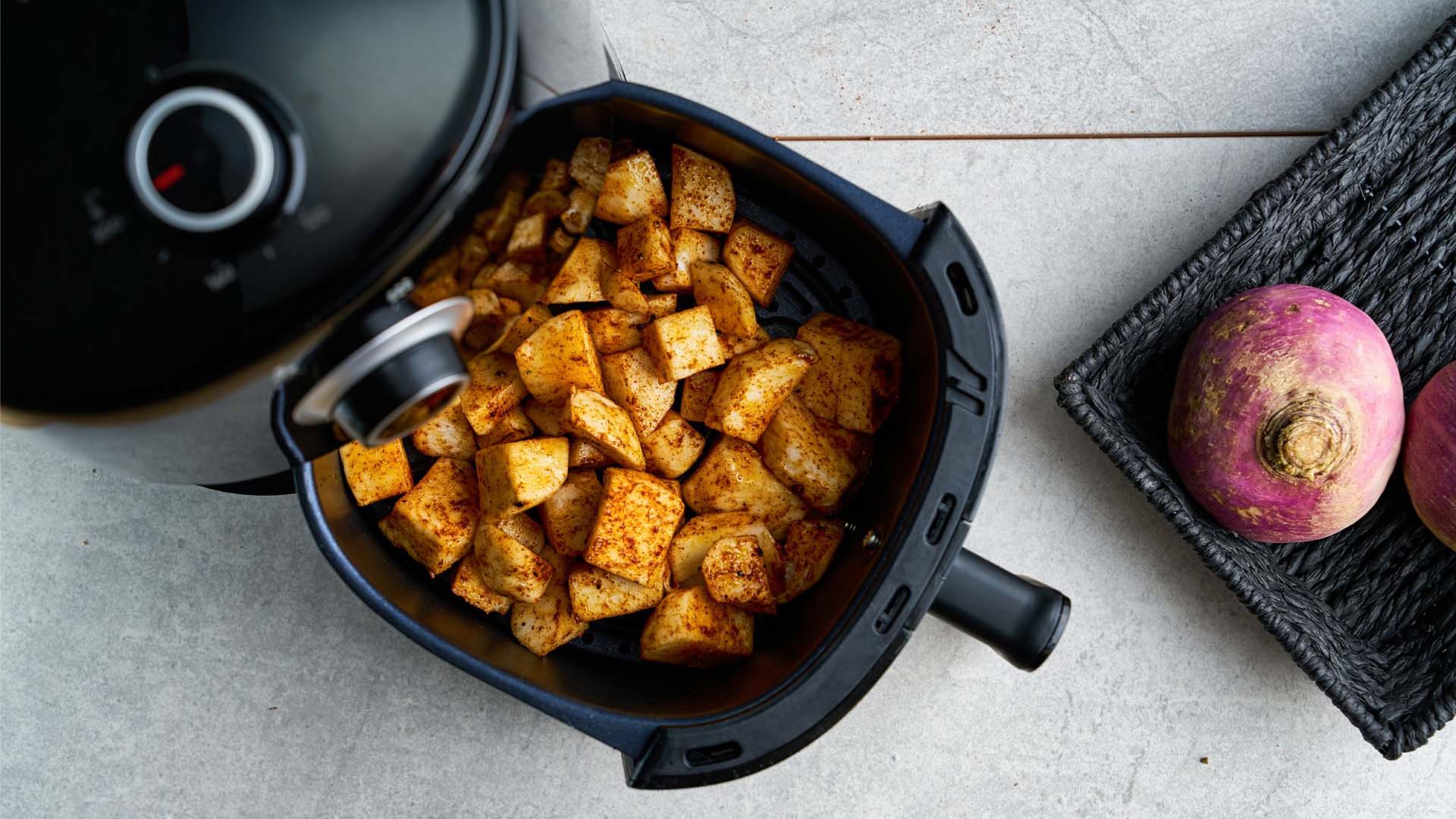
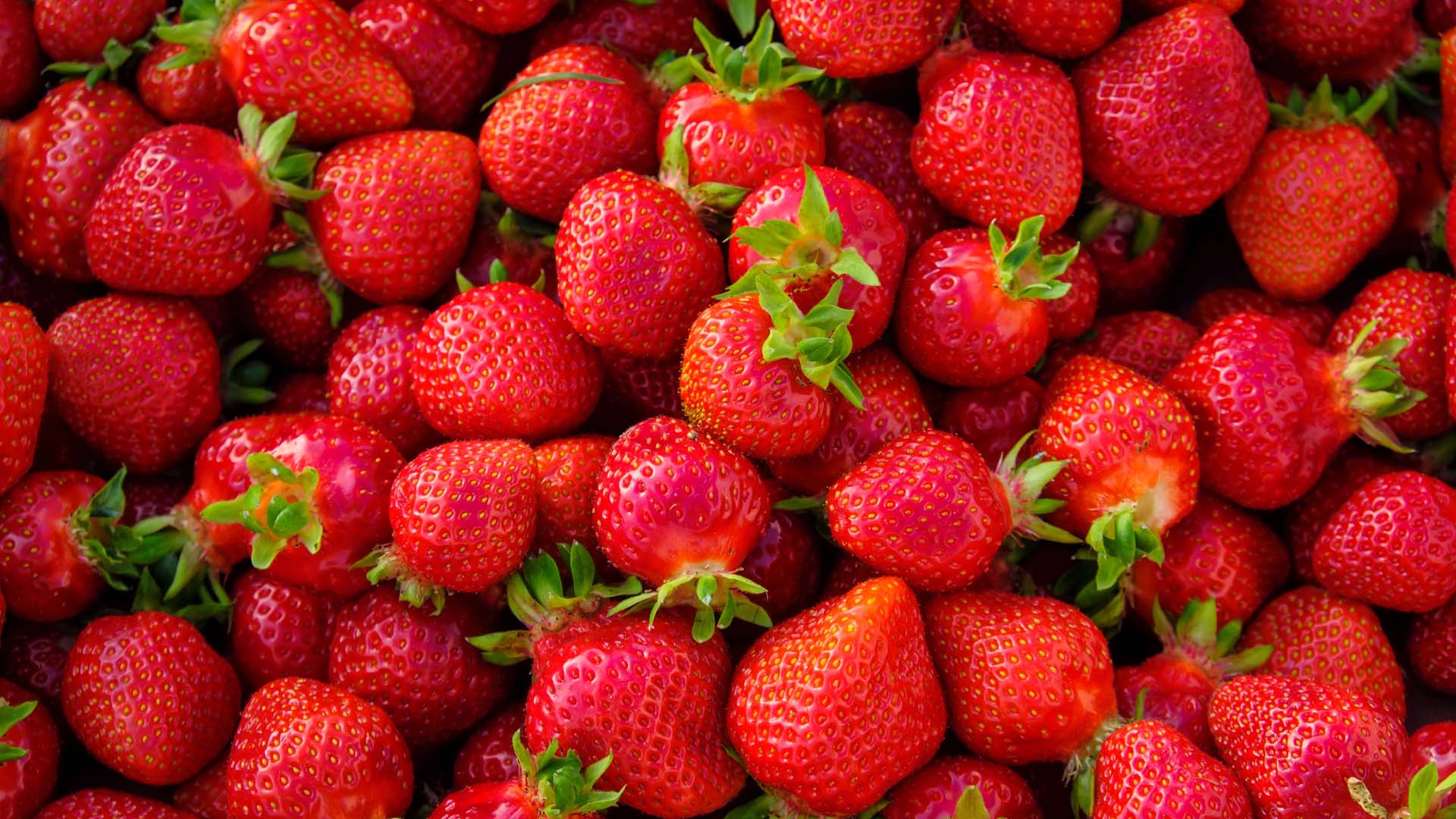
Strawberries don't just taste and look great, they are full of fibre, help your heart health and may even stave off dementia.
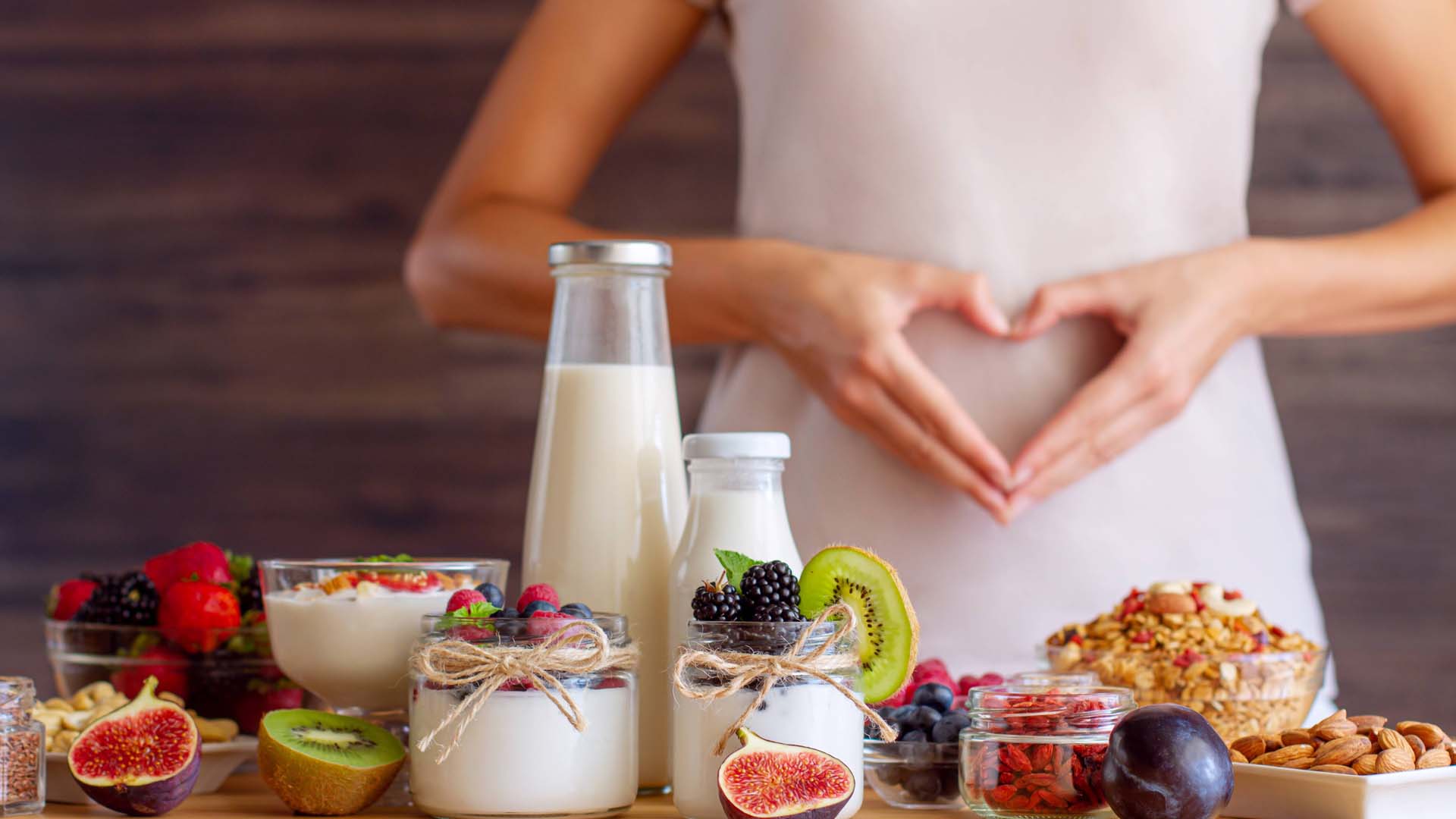
Looking after your gut health could be one of the biggest things that you can do for your overall health. Here are the best foods to keep your gut happy.
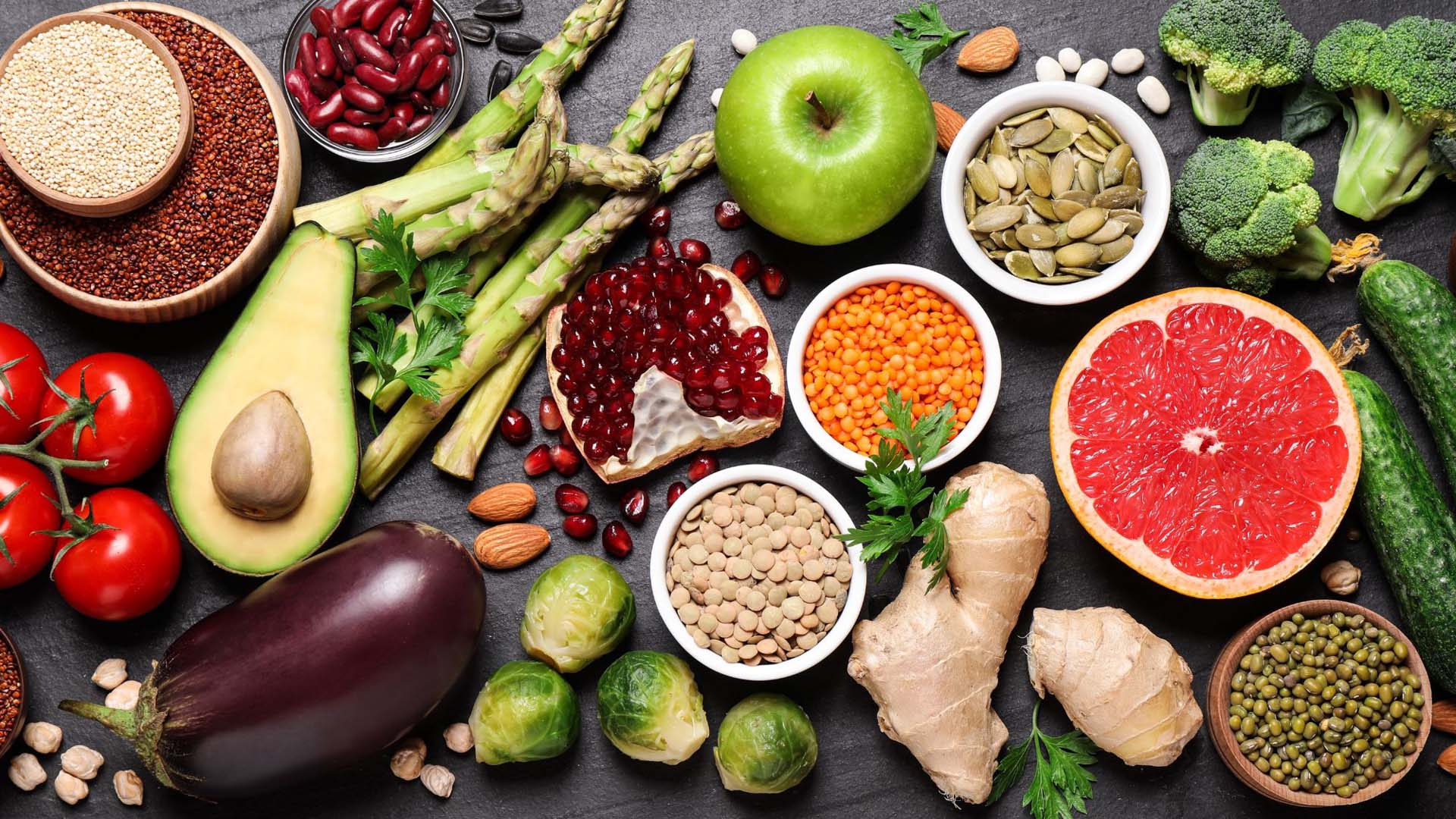
The foods that could help you live longer and protect against chronic illness.